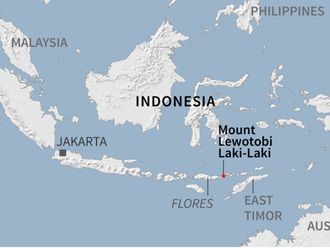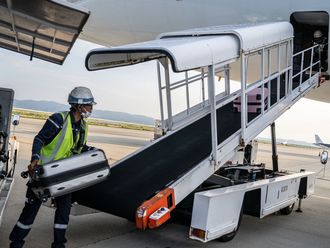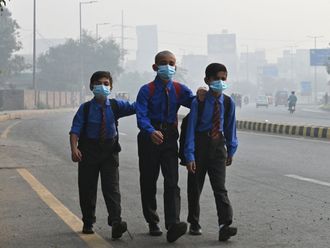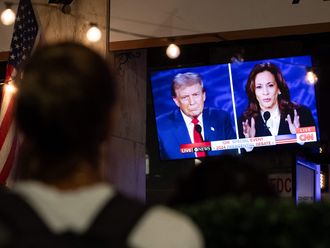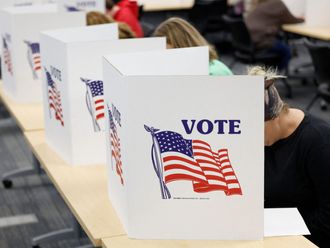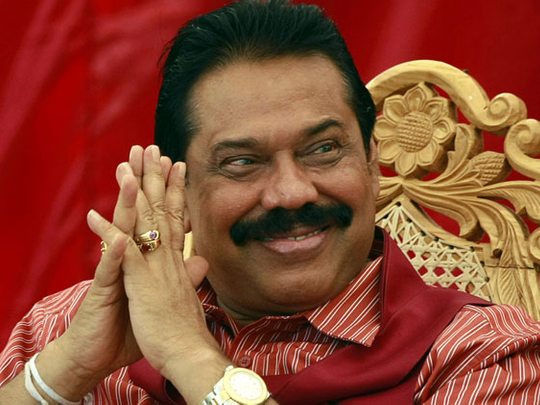
Colombo: President Mahinda Rajapakse's ruling party increased its parliamentary gains yesterday after new voting in Sri Lanka's elections, but fell short of the two-thirds majority it had sought to make constitutional changes.
Rajapakse's United People's Freedom Alliance secured a total of 144 seats in the 225-member Parliament after a revote was held on Tuesday in some areas affected by fraud and other seats were allocated.
The victory follows Rajapakse's re-election in presidential polls three months ago.
The final results mean the ruling party can form a government with a simple majority, but it is six seats short of its goal of a two-thirds majority, which Rajapakse had asked for in order to make unspecified changes to the constitution.
Government officials have speculated that the planned changes may include electoral reform and provisions against promoting separatism after the government's military victory against the Tamil Tiger rebels last year.
Despite opposition allegations that the president wants to monopolise power, he is a hero to many of the country's Sinhalese majority for his role in the war victory.
The UPFA had already secured 117 seats after the election, a simple majority to form a government.
However, election officials ordered a revote to elect 16 lawmakers after allegations of intimidation and fraud. Another 29 seats were to be distributed among parties according to their vote percentage.
The Election Department yesterday said that Rajapakse had won 10 of the elected seats in the revote and secured 17 more seats according to percentage for which he will appoint members.
His nearest rival, United National Front, secured 60 seats. An ethnic Tamil party and a coalition led by the country's jailed former army chief won 14 and seven seats respectively.
Unsuccessful challenge
General Sarath Fonseka was arrested in February, weeks after he unsuccessfully challenged Rajapakse's presidency. He now faces a court-martial for allegedly planning his political career while still in uniform and breaching regulations in purchasing military hardware..
Meanwhile, Amnesty International called on the new Parliament to drop long-standing anti-terror and emergency laws because the civil war is over.
"Perpetuation of the emergency is now just being used as a weapon against political opposition, and as a quick fix for poor law enforcement practices and a dysfunctional justice system," said Madhu Malhotra, Amnesty International's Asia-Pacific deputy director.


